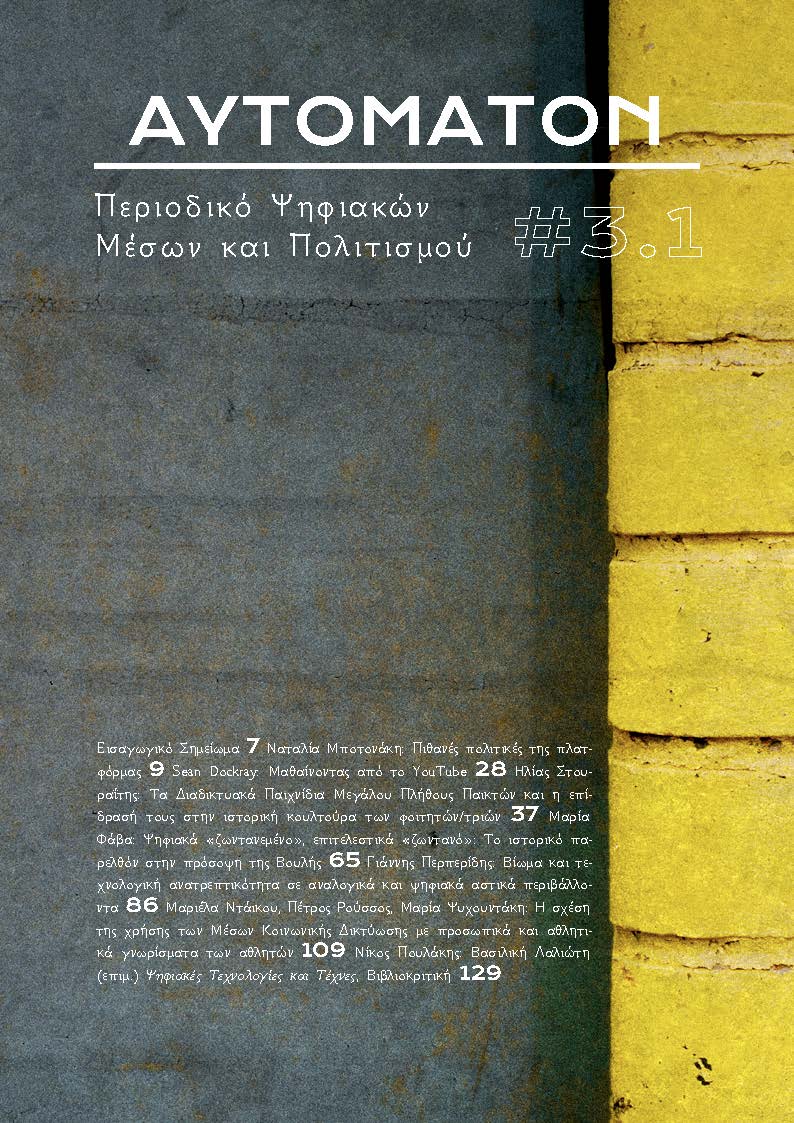Online Massively Multiplayer Games and their impact on students’ historical culture

Abstract
Online Massively Multiplayer Games have developed an impactful way of contacting young people with the historical past. The article presents an investigation of two OMM games with historical content on fourth-year students of the History department of the Ionian University. The main purpose is to determine the impact they had on students’ historical culture, how History students perceive the historical past and interact with it in Massively Multiplayer Online Game environments. The game software and then the students’ experience of participating in the games were studied through pre- and post-game questionnaires and focused interviews. The results of the research highlight the influence that games have on young people, even in those cases where they have had no previous contact with them.
Article Details
- How to Cite
-
Stouraitis, E. (2024). Online Massively Multiplayer Games and their impact on students’ historical culture. Αutomaton: Journal of Digital Media and Culture, 3(1), 37–64. https://doi.org/10.12681/automaton.38845
- Section
- Articles

This work is licensed under a Creative Commons Attribution 4.0 International License.
Authors wishing to publish articles in this journal agree to the following terms:
1. The Authors retain the Copyright and grant the journal the right of first publication while at the same time the copyright of the work is protected under the Creative Commons Attribution License which allows third party licensees to use the work as they wish provided they acknowledge the work's authorship and initial publication in this journal.
2. Authors may enter into separate additional contractual arrangements for the non-exclusive distribution of the published journal version of the work (for example, posting it to an institutional repository or publishing it in a book), with acknowledgment of its initial publication in this journal.
3. Authors are allowed and encouraged to post their work online before and during the submission process (e.g. on their website) as this can lead to productive exchanges as well as earlier and more citations of published work (See The Effect of Open Access).


